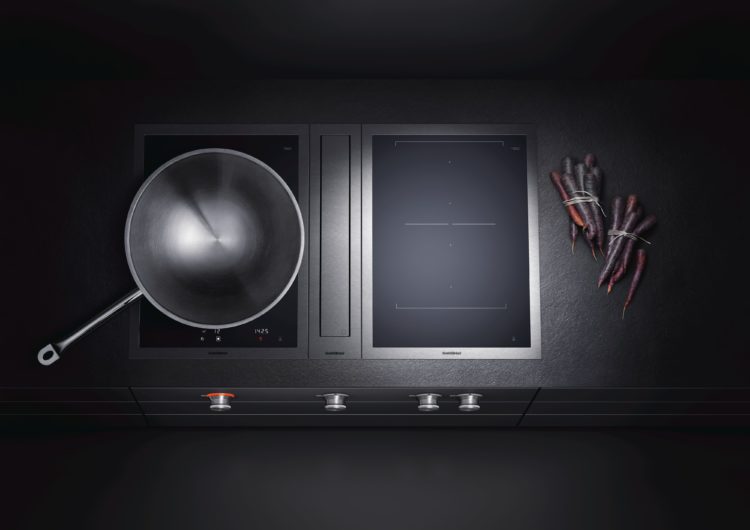Metaphoric interfaces
Dec 2017 - ongoing
A case study for the digitally enabled luxury kitchen
Food, and cooking in particular, is a practice very rich in experiences. It challenges our perception and immerses us in a world of sensual impressions. Feeling textures, experiencing aroma, manipulating and experiencing all these aspects of food is what makes this such an enriching experience for many. This makes the kitchen a sanctuary for our senses.
And yet, as technological progress permeates further into more and more aspects of our lives, it is also entering our kitchens. And with it, screens, apps and algorithms are threatening to replace many of those sensuous interactions with generic ones. But what if, instead of streamlining and conforming yet another domain, technology could add to the sensuous nature of the experience?

This thesis project advocates the attitude that it is a matter of contextualization.
Successful interfaces have often been the result of powerful metaphors. By likening an unfamiliar context to a context we are familiar and experienced with, it becomes relatable and easier to navigate. With its many sensory stimuli, the kitchen has an enormous potential to create such metaphors, which screens and buttons leave largely untapped.
Ever wondered how well done the cake in the oven is? Or how much longer the sorbet needs in the freezer? How about having a better understanding of how much heat your stove actually radiates to finally succeed with a perfectly roasted steak? This thesis seeks to answer these questions by investigating interfaces that intuitively communicate with the user across multiple senses.
Project coaches: Ianus Keller, Rick Schifferstein